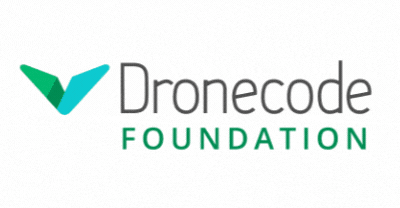Open Source Brings Good Things to Life
Dan Whiting | 22 June 2022
If you are interested in online and in-person training and certifications in open source software development and key open source software, such as Linux and Kubernetes, see our special discount just for readers of this post. Scroll to the end.

On Thursday, 6/23, over the night skies over Congress Bridge in Austin, Texas, 300 drones will work in concert to provide a light show to entertain but also inform about the power of open source software to drive innovation in our world, making an impact in every life, every day.
Backing up a bit, open source software often conjures up inaccurate visions and presumptions that just aren’t true. No need to conjure those up – we all know what they are. The reality is that open source software (OSS) has transformed our world and become the backbone of our digital economy and the foundation of our digital world.
The reality is that open source software (OSS) has transformed our world and become the backbone of our digital economy and the foundation of our digital world.
Some quick, fun facts:
- In vertical software stacks across industries, open source penetration ranges from 20 to 85 percent of the overall software used
- Linux fuels 90%+ of web servers and Internet-connected devices
- The Android mobile operating system is built on the Linux kernel
- Immensely popular libraries and tools to build web applications, such as: AMP, Appium, Dojo, jQuery, Marko, Node.js and so many more are open source
- The world’s top 100 supercomputers run Linux
- 100% of mainframe customers use Linux
- The major cloud-service providers – AWS, Google, and Microsoft – all utilize open-source software to run their services and host open-source solutions delivered through the cloud
Open source software is about organizations coming together to collectively solve common problems so they can separately innovate and differentiate on top of the common baseline. They see they are better off pooling resources to make the baseline better. Sometimes it is called “coopetition.” It generally means that while companies may be in competition with each other in certain areas, they can still cooperate on others.
I borrowed from a well-known tagline from my childhood in the headline – open source does bring good things to life.
Fueling Drone Innovation
Drones were introduced to the world through military applications and then toys we could all easily fly (well, my personal track record is abysmal). But the reality is that drones are seeing a variety of commercial applications, such as energy facility inspection for oil, gas, and solar, search and rescue, firefighting, and more, with new uses coming online all of the time. We aren’t at The Jetsons level yet, but they are making our lives easier and safer (and some really cool aerial shots).
Much of that innovation comes from open source coopetition.
The Linux Foundation hosts the Dronecode Foundation, which fosters open source code and standards critical to the worldwide drone industry. In a recent blog post, the general manager, Ramón Roche, discusses some of the ways open source has created an ecosystem of interoperability, which leads to users having more choice and flexibility.
Building the Foundation
Ramón recounts how it all started with the creation of Pixhawk, open standards for drone hardware, with the goal to make drones fly autonomously using computer vision. Working to overcome the lack of computing power and technology in 2008, Lorenz Meier, then a student, set out to build the necessary flight control software and hardware. Realizing the task’s scale, he sought the help of fourteen fellow students, many of whom were more experienced than him, to make it happen. They built Pixhawk and kick started an open source community around various technologies. It, “enabled talented people worldwide to collaborate and create a full-scale solution that was reusable and standardized. By giving their technology a permissive open source license, they opened it to everyone for use and collaboration.”
Benefits of Openness in the Real World
The innovation and technological backbone we see in drones is thanks to open software, hardware, and standards. Dronecode’s blog has interviews with Max Tubman of Freefly Systems talks about how open standards are enabling interoperability of various payloads amongst partners in the Open Ecosystem. Also, Bobby Watts of Watts Innovation explains the power of standardization and how it has streamlined their interoperability with other ecosystem partners like Gremsy and Drone Rescue Systems.
The innovation and technological backbone we see in drones is thanks to open software, hardware, and standards
Check out both interviews here and read about what is next.
The story of open source driving innovation in the drone industry is just one of thousands of examples of how open source is driving global innovation. Whether you know it or not, you use open source software every minute of every hour of every day.
Training promo
Use promo code DRONE25 here to receive up to 25% off of Linux Foundation’s training, taken by millions of students around the world. Expires on June 30, 2022. View the whole catalog, from AI and blockchain to web and application development, we have something for you.